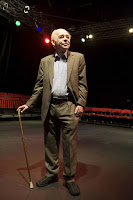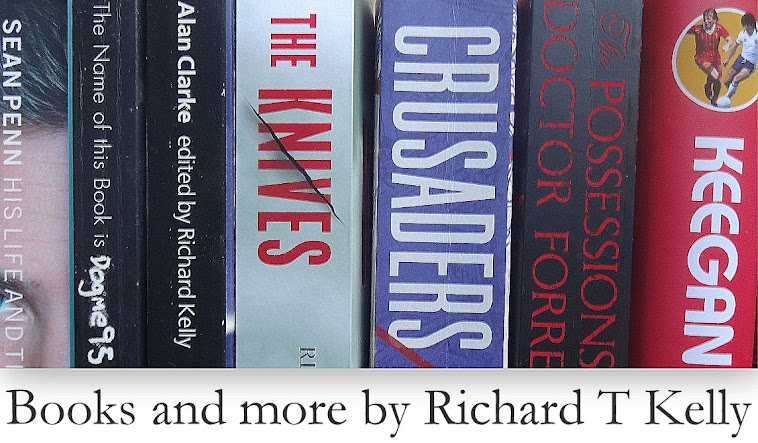 Goodnight Alan Plater, son of Jarrow. Hard to think of a more distinguished writing career in British television, alongside a contribution to British theatre that showed a way forward. The obituaries have been good, Mark Lawson especially respectful, but personally I hope someone will yet write more about Plater's Close The Coalhouse Door, made for the stage from the stories of Sid Chaplin in collaboration with the singer-songwriter Alex Glasgow, a show that enjoyed an opening night in Newcastle in 1968 with a cast of ten plus a complete colliery band...
Goodnight Alan Plater, son of Jarrow. Hard to think of a more distinguished writing career in British television, alongside a contribution to British theatre that showed a way forward. The obituaries have been good, Mark Lawson especially respectful, but personally I hope someone will yet write more about Plater's Close The Coalhouse Door, made for the stage from the stories of Sid Chaplin in collaboration with the singer-songwriter Alex Glasgow, a show that enjoyed an opening night in Newcastle in 1968 with a cast of ten plus a complete colliery band...In 2007 Plater discussed the play and its first production during a terrific interview with Kate Harris for a British Library Theatre Archive Project in association with the University of Sheffield.
KH: I wanted to ask… whether you have a particular theatrical memory, or a particular piece of theatre that you were involved in, that has been a highlight for you? […]
AP: Oh Coalhouse, I think… because I became aware that we’d struck a chord with an audience on Tyneside. Peggy [Ramsay] came up to the first night, and five minutes in she grasped my hand and said, ‘My God darling, this is revolutionary.’ And the atmosphere was absolutely electrifying… There was a great explosion of joy and saying… ‘We will win in the end.’ And I think… if there is a kind of underlying theme that seems to run through life, we all… we will win in the end. And not only had we uncovered something in the audience, I think that we had uncovered something in ourselves as play-makers. I think Alex and I and Sid thought ‘Jesus! This is… almost scary you know?’… I mean, every seat was sold... the word of mouth… And there were stories of exiles coming up to Newcastle to see a football match, on Saturday afternoon. Went to the theatre, say, ‘We’ll go to the match this afternoon, have you got any tickets tonight?’ ‘No we’ve only got tickets for the matinée.’ So they went to see the play, they went to the matinée instead of going to the match! I mean… from Geordies, this is… So from that whole period I think that was the Damascus moment...

No comments:
Post a Comment